Expert Tips To Make Your Summer Berries Last
As a participant in the Amazon Services LLC Associates Program and other affiliate programs, Easy Homemade Life may collect a share of sales or other compensation from the links on this page. This comes at no additional cost to you, and all the prices and availability are accurate at the time of publishing.
Get ready to savor the essence of summer with perfectly preserved berries. This article unlocks the secrets to sorting, washing, and storing techniques that will preserve their flavor and keep your summer berries fresh longer.
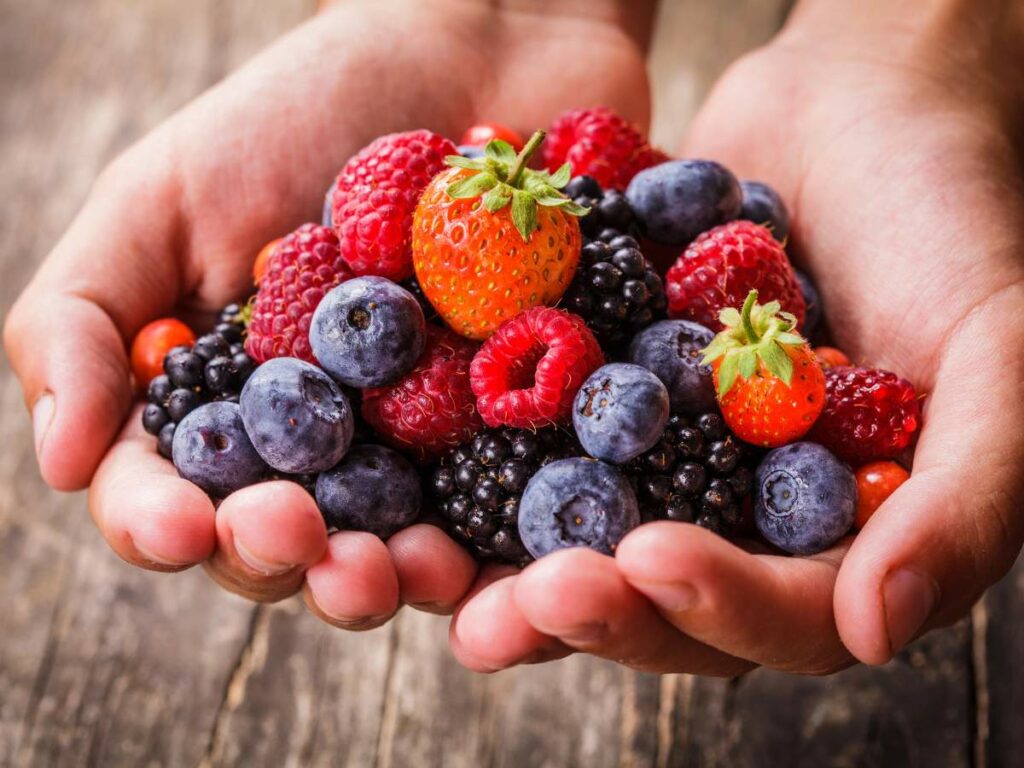
Bringing Home Summer Berries
Summer berries are one of the best parts of the summer season. With berries popping up at grocery stores, farmers’ markets, and roadside stands, it’s tempting to stock up every chance you get.
The problem is that most berries don’t have a long shelf life, and their limited window of perfection is even shorter. However, there are things you can do to extend their shelf life and savor the essence of summer for as long as possible without being a master of water-bath canning.
No matter your berry preference — strawberries, raspberries, blueberries, or blackberries — the golden rules of sorting, washing, and storage remain constant. Learn how to maximize their freshness and extend their shelf life with these essential tips and tricks.
Buying Your Berries
Having the best summer berries begins with the buying process. When purchasing berries from the store or market, there are things you can do and look for in the fruits to make sure that you take home the freshest, best-quality berries.
Buy In Season
It’s always an advantage to buy in-season berries like blueberries, blackberries, raspberries, and strawberries. Not only are they easily available this time of year, but you can buy them for less.
I make sure to buy them in bulk to use for later. I like serving them on top of my homemade waffle or with a slice of lemon blueberry pound cake. I also love using summer berries on every beach charcuterie board I make for summer parties or events!
In-season berries are often at their peak in terms of flavor, texture, and nutritional value. Don’t stock up on the usuals only, though, try uncommon summer berries like marrionberries, tayberries, elderberries, gooseberries, and boysenberries.
Check for Freshness
You can tell that a fruit is at its peak just by looking at it. When shopping for summer berries, choose ones that appear firm and plump with vibrant, even coloring. Bruised, mushy, or moldy berries indicate that they’re well past their prime, which means that they won’t taste as good or last as long after you buy them.
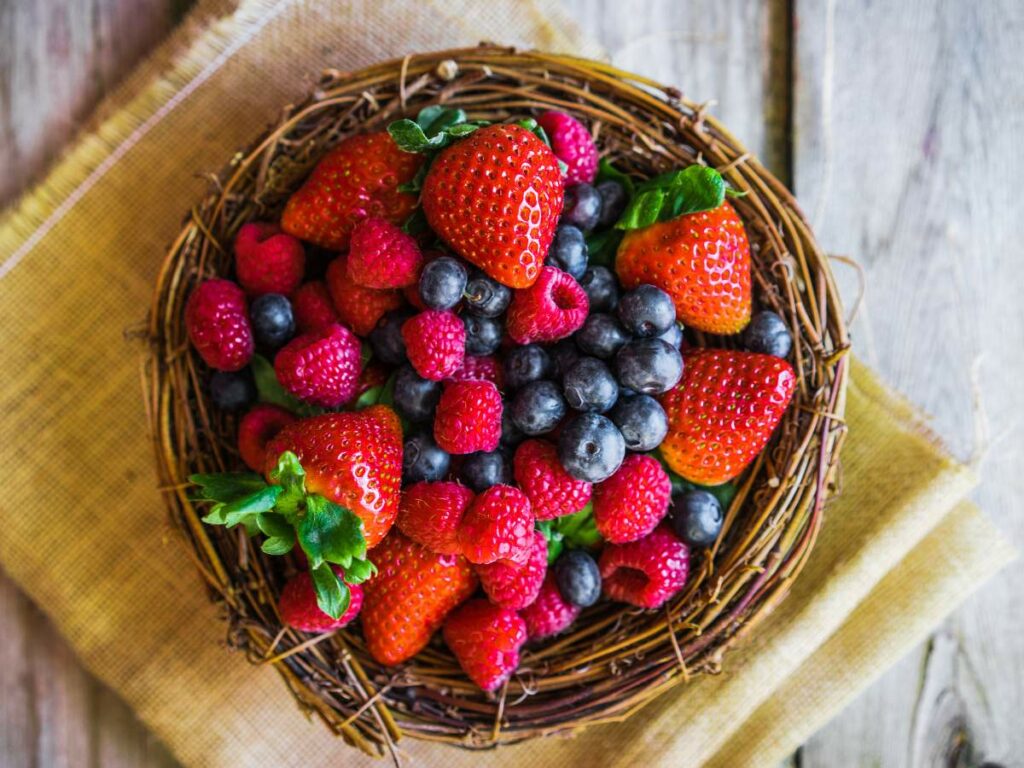
Observe the Color
Choose berries that have bright and consistent coloring. Berries don’t continue to ripen after they’ve been harvested, so full-colored berries were allowed to ripen fully before being picked. On the other hand, berries that have different or uneven coloring, like green or yellow strawberries, may have been harvested too early and may not have the best flavor.
Smell the Berries
You can also tell the freshness of berries through their smell. Ripe and flavorful berries typically have a sweet, fragrant aroma. If the smell is faint or absent, it might be an indication that the fruit is flavorless or isn’t ripe yet. Obviously, an unpleasant smell means that the fruit is spoiled and isn’t safe to eat anymore.
Feel the Berries
Touch can also help you determine the berries’ freshness – the firmer and plumper they are, the better. Firm berries are more likely to be fresher and longer-lasting. Soft, mushy berries may be overripe or close to spoilage. Be sure to turn the package over to check the berries at the bottom!
Inspect the Packaging
If you decide to purchase pre-packaged berries, check for signs of mold and moisture at the bottom of the container. This indicates that some berries in the package are either spoiled or close to spoiling, which can quickly affect the others.
Additionally, I don’t recommend buying pre-cut fruits unless you plan to consume it right away. Trevor Craig, a food safety expert from Microbac Laboratories in Pennsylvania, says “If you do decide to stick with pre-cut, choose the freshest berries as close as possible to the date of your event. It will typically say on the package when the fruit was cut and when it expires.”
Look for Signs of Care
Another important thing to observe when purchasing berries is how they are stored or displayed in the store. If they are stored in a cool, dry place and away from direct sunlight, it means that the seller knows and understands how to keep their berries fresh. This kind of care typically translates to better products that are ideal for consumers.
Buy From A Reputable Source
Only buy your berries in reputable stores and sellers. Local vendors and farmer’s markets are often more reliable in providing fresh and high-quality produce. They typically have many repeat buyers who keep coming back for their goods.
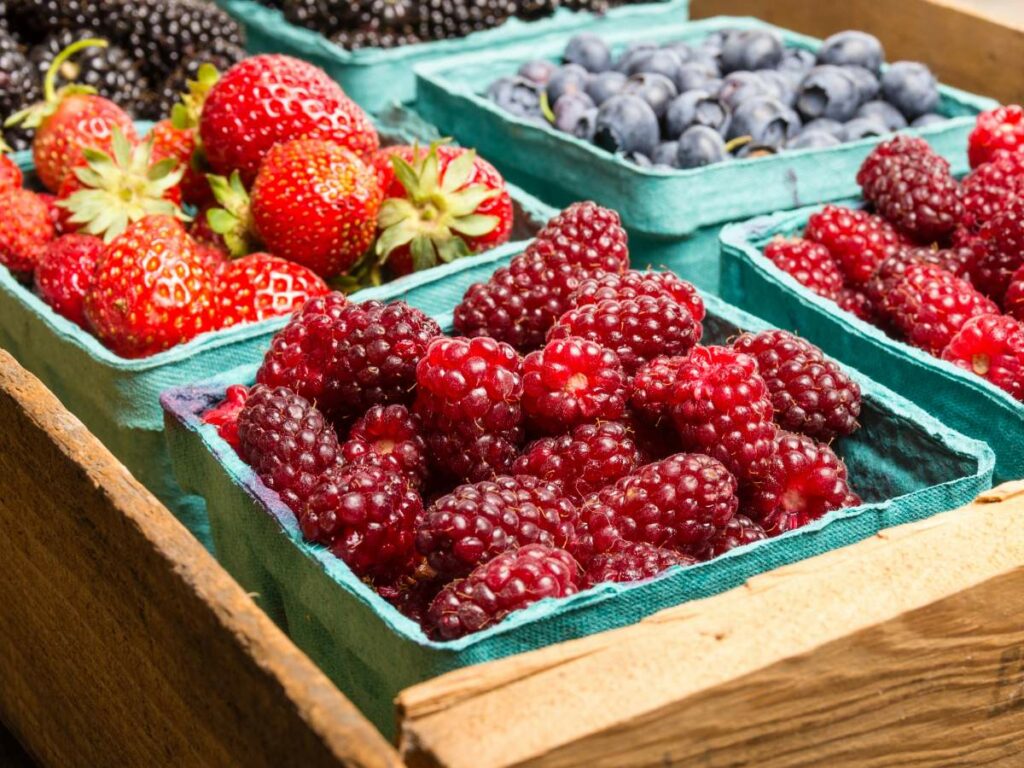
Sorting Berries
If you’ve ever asked in a public forum about washing summer berries, you will get some very impassioned responses. Most berries are picked on a dry day and packed right in the field as they come off the bushes. By the time they get to your home kitchen, they are still coated in the dust and dirt from the field. While most people agree that you should wash your berries, people like to argue over when and how.
However, the proper handling of berries starts before even thinking about washing or storing them. In fact, the first thing you should do when you get your berries home is to inspect and sort them.
Start by setting aside any broken or soft berries to eat that day or make into jam. Then, discard any crushed or moldy berries. Crushed berries cannot be cleaned, and one moldy berry can quickly spoil the whole pack, so remove them as soon as you spot them.
Washing Summer Berries
Now that your berries are sorted and inspected let’s return to the argument about when to wash them. People who believe that it’s important to wash berries as soon as possible believe that washing the berries prevents the whole pack from spoiling. Meanwhile, those who believe it’s better to wash as you eat believe that the act of washing is what makes them go moldy in the first place.
The truth is that they are both right, and they are both wrong. Berries don’t mold because they are or are not washed. They mold because of excess moisture — the enemy of the berry. This moisture can come from condensation in the packaging, juice from crushed or broken berries or leftover water from being washed. The choice of when to wash should be made depending on what you are doing with your berries and how you want to store them.
Berries don’t need soap or special fruit washes — most of which are mainly vinegar with much higher price tags — to be clean enough to eat. If the plan is to eat or freeze them immediately, a simple rinse under running water will suffice.
If you want to wash your berries before storing them in the fridge, vinegar, like freezing, can help kill off any microspores of mold you may not be able to see. Fill a small tub or bowl with three or four cups of cold water and one cup of basic white vinegar.
Allow the berries to soak for up to five minutes, then rinse with clean water to remove any lingering vinegar smell or taste. The low ratio of vinegar to water should prevent the berries from tasting pickled once rinsed and dry.
“Living in an area that’s rich in local, seasonal growers, I love buying summer berries from nearby farms by the bushel and freezing them for use later in the year. This helps me ensure my kids get the freshest, best-tasting berries around, and it also helps support the local agricultural economy.”
— Ksenia Prints, At the Immigrant’s Table
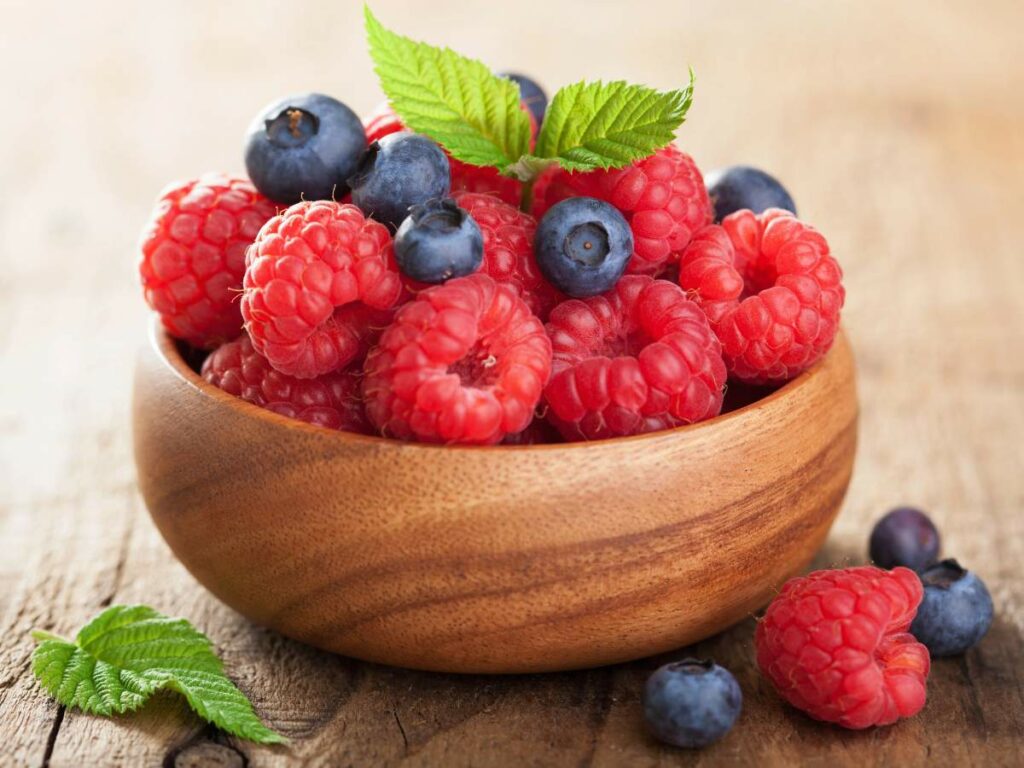
Storing Berries
For maximum shelf life, fruits should be properly stored. Berries should be dried thoroughly and stored in cool, dark places. A fridge or freezer works best. After washing, rinsing, and draining your berries, lay them on a clean towel and let them air dry.
Pro tip: Place the berries on a rimmed cookie sheet to make it easy to move them around, keeping your counters accessible for other things.
Refrigerator
If you will be eating them in the next three to five days, the refrigerator is your best option. Regardless of when you choose to wash them, inspect the berries for mold, moisture, and broken berries.
Ensure the berries have had plenty of time to dry, then place them into a clean, dry and ventilated container. Washing and reusing the plastic clamshell they were sold in is perfectly fine. If there is a moisture-absorbing liner in the container, check to ensure it’s dry. If not, remove it and consider replacing it with a paper towel to help absorb any berry juice.
Do not store fresh berries in an airtight container for more than a few hours, as the lack of ventilation can cause the berries to mold. Remember: moisture is the enemy of a good berry.
Freezer
Freezing fruits is the best option if you want to extend their life even longer. It will lock in that fresh-from-the-berry-bush flavor and prevent the berries from going bad before you can eat them.
While frozen berries may not retain their shape perfectly when they thaw, you can use them in smoothies, eat them on their own as a frozen treat or use them in recipes that call for frozen berries.
To freeze your berries, start with clean, dry berries and place them in a single layer on a cookie sheet. Freeze until solid (two to six hours, depending on freezer settings and berry size). Transfer them to a freezer-safe, airtight container to prevent them from absorbing any off flavors, and then return to the freezer.
Unlike refrigerated berries, frozen berries aren’t at risk of molding. Berries should last in the freezer for about six months.
Bananas are another useful fruit to keep in your freezer. The secret to freezing bananas perfectly was transformational! Now, we’re always stocked and ready for smoothies and banana sorbet (nice cream).
Preserving Summer Berries
You can enjoy the tantalizing flavors of summer berries for longer by implementing proper sorting, washing, and storage techniques. With these tips in mind, you can relish the taste of summer throughout the year and make the most of these delightful seasonal treats.
Portions of this article originally appeared on Renee Nicole’s Kitchen.


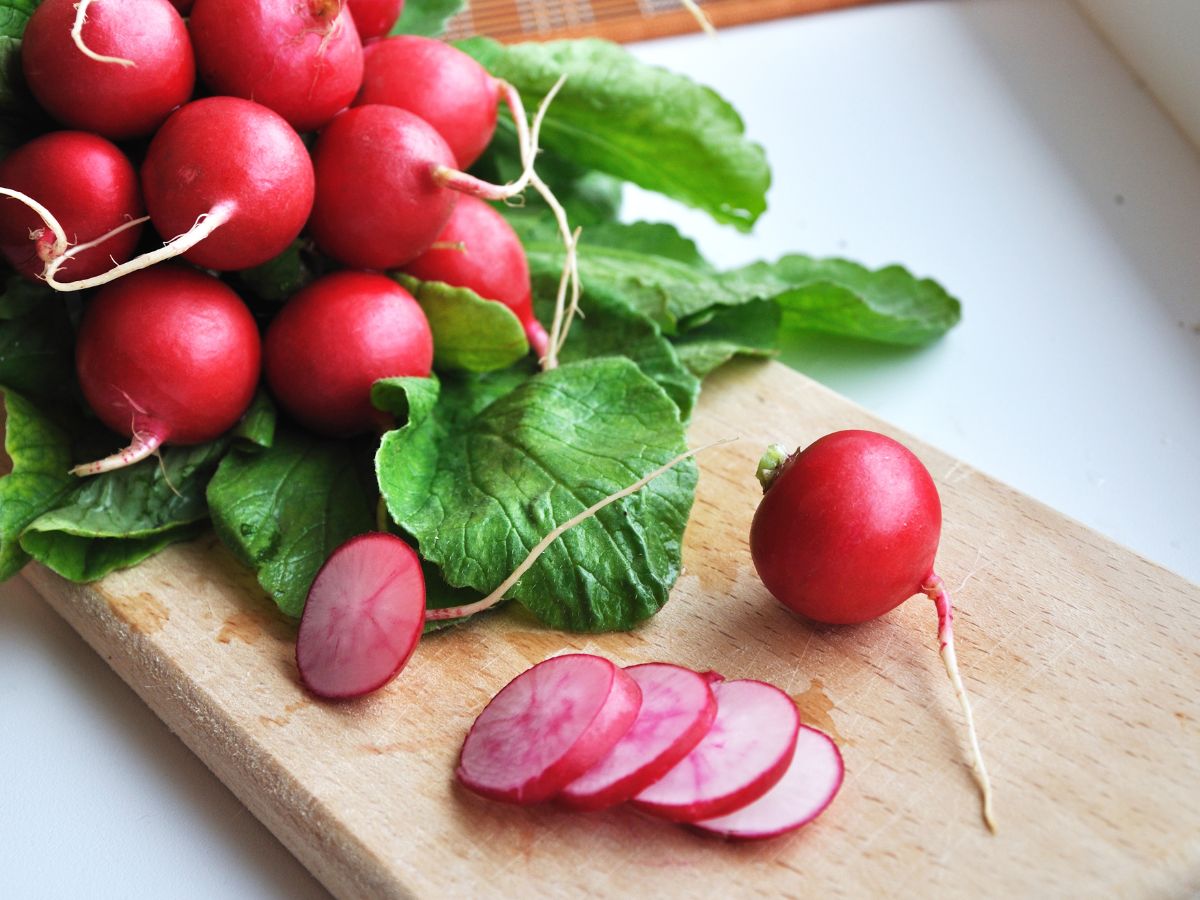
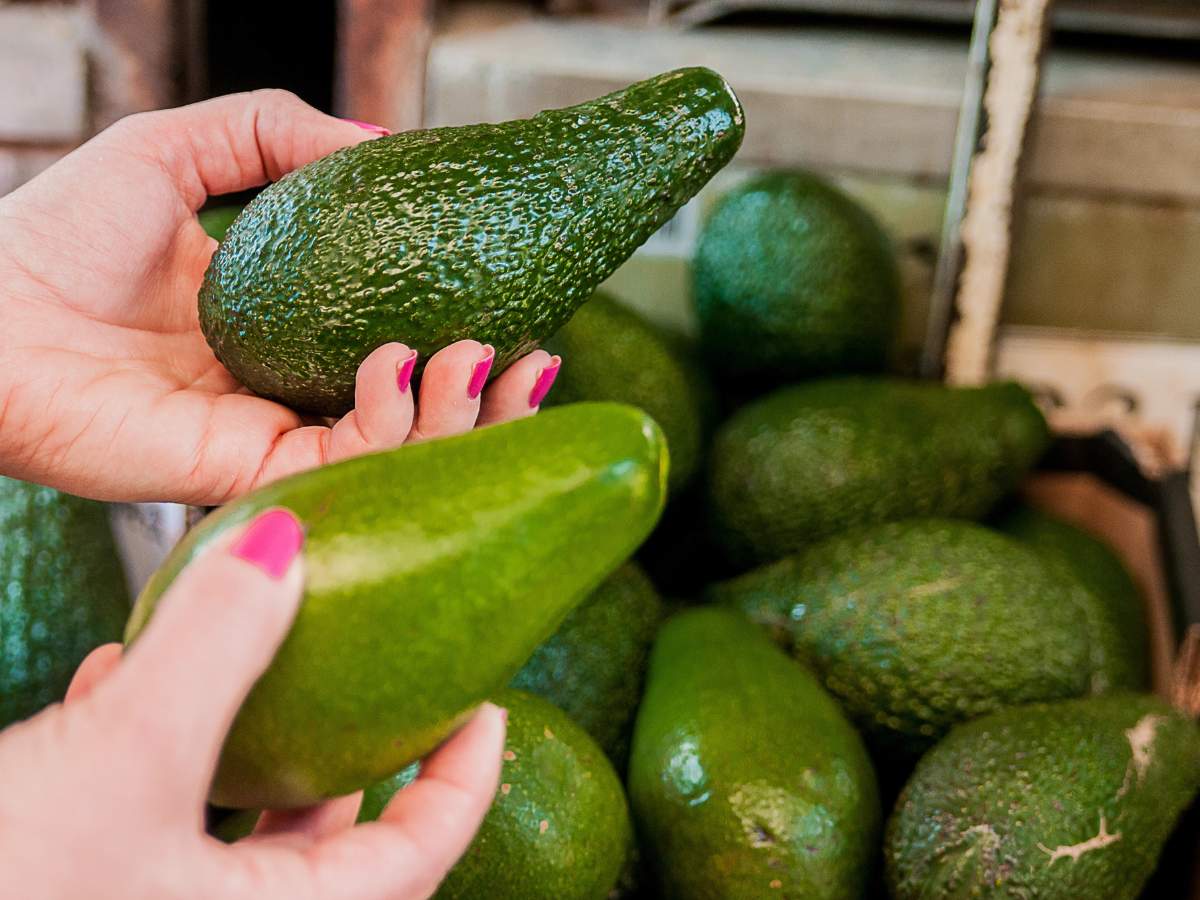

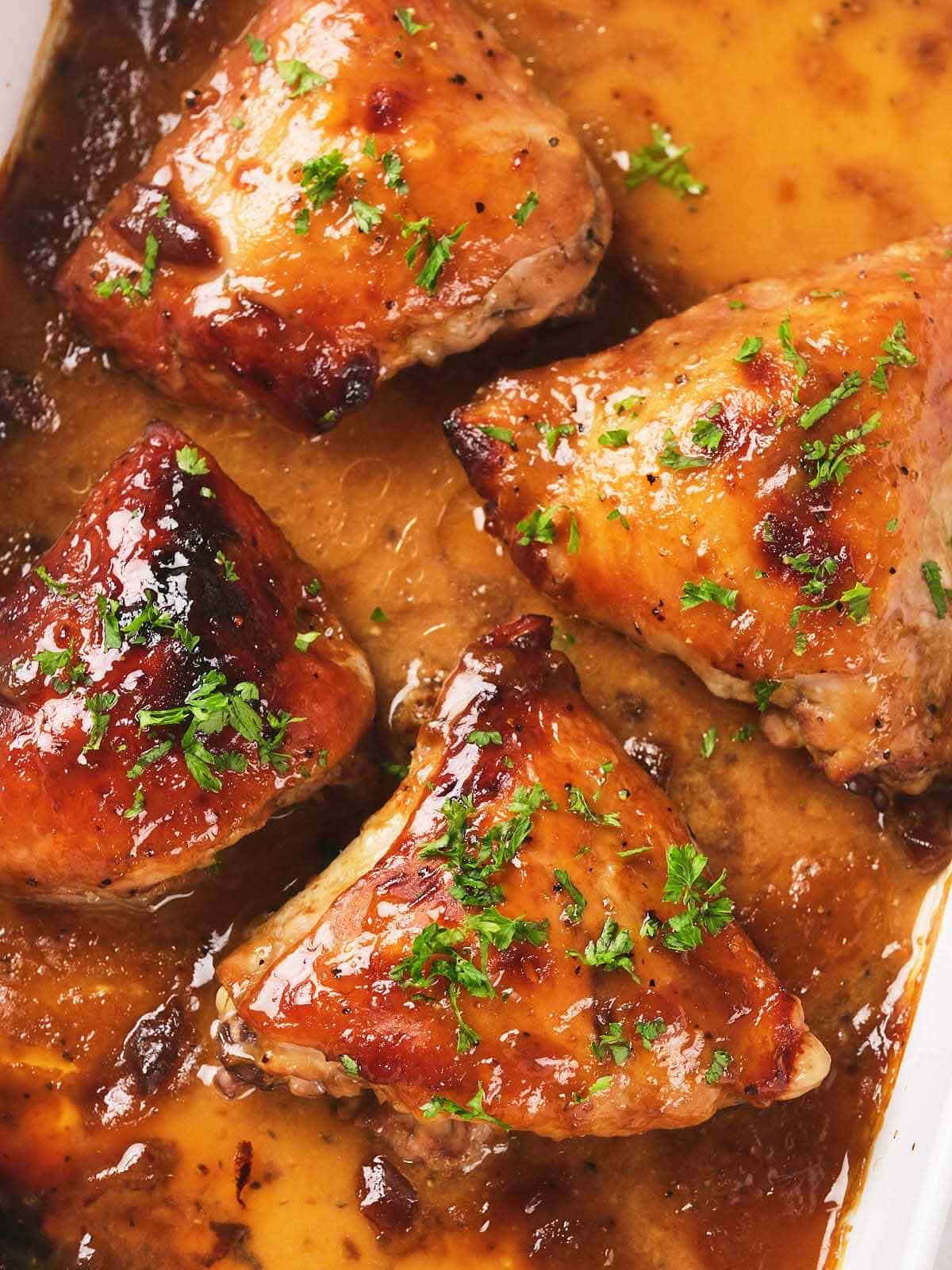

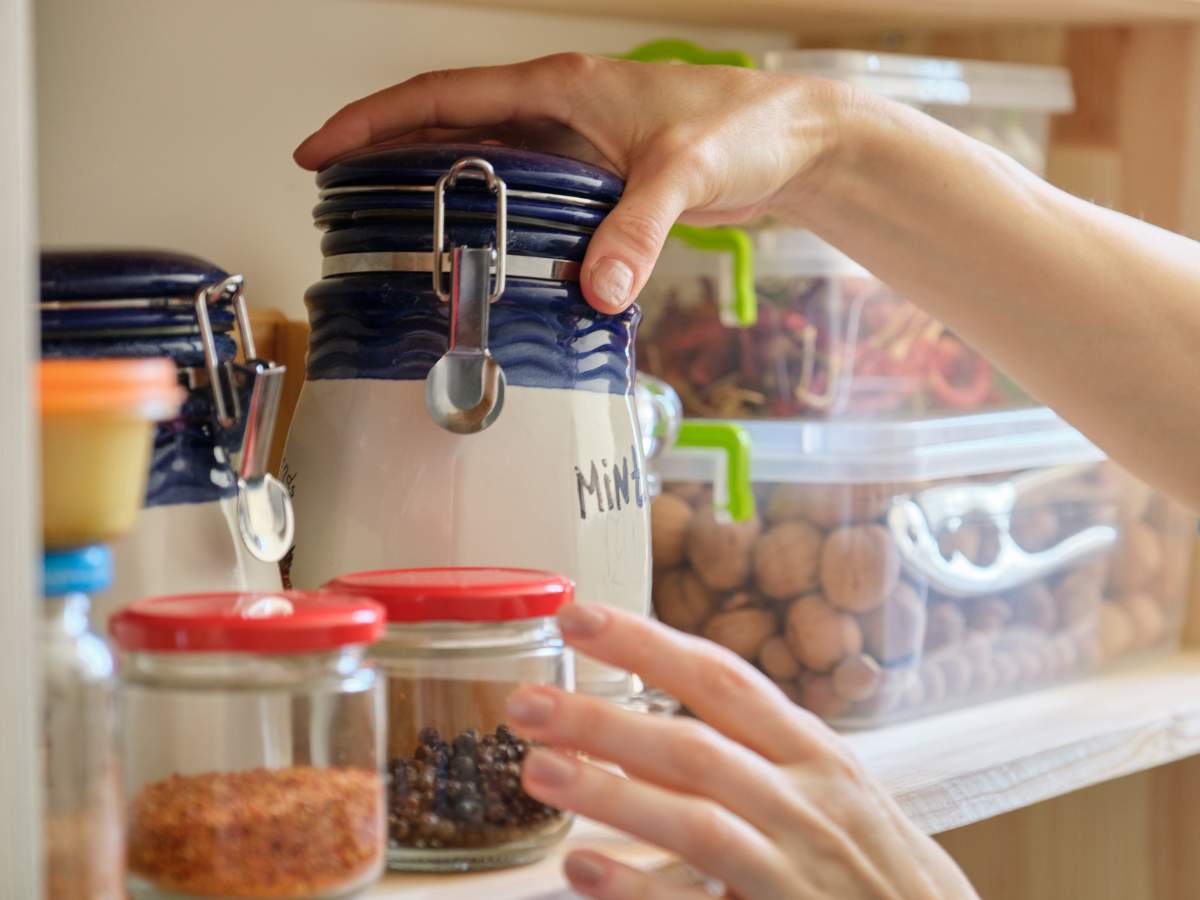
I hate wasting food so I was really glad to find these tips!! I’m going to try them!
Me too, Lizzy! I’m happy you found this post. I hope it will be helpful.